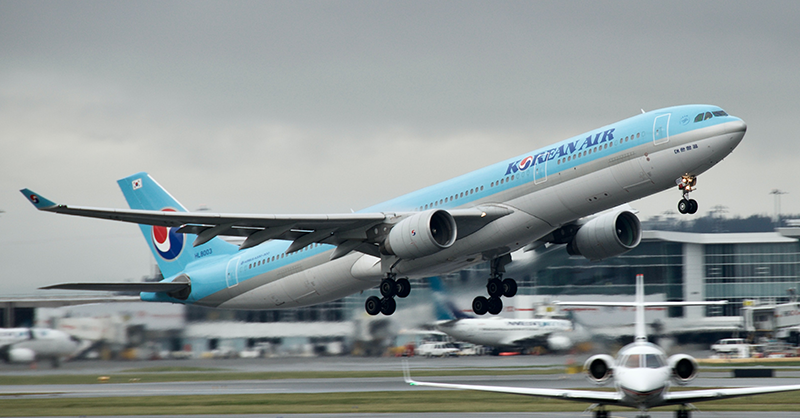Korean Air's ready-made Asiana deal remedy will test EU's thinking on airline mergers
26 January 2023 14:25 by Nicholas Hirst, Natalie McNelis, Jenny Lee

Korean Air Lines’ bid to take over its closest rival Asiana is the latest airline merger to test the European Commission’s evolving approach to consolidation in the sector.
Two attempts by airlines to merge in recent years — Air Canada’s takeover of Transat and IAG’s swoop for Air Europa — both failed in the face of opposition from the enforcer.
In those deals, the regulator appears to have toughened its traditional analysis of route-by-route competition, viewing more markets as problematic, while at the same time deeming the traditional remedy to such concerns insufficient. That represents a major conundrum for the sector.
The commission is reacting to the fact that many airlines’ promises to relinquish airport slots to any new entrant went unused. In response, it seems to be placing greater importance on the merging companies finding and contracting with a credible new entrant before receiving approval.
Korean Air, which recently sought EU approval to buy Asiana, appears to be on the road to doing just that. But it is uncertain whether its proposals will satisfy EU regulators or not.
Tough reviews
Hanjin Kal, which owns Korean Air, announced the 1.8 trillion-won ($1.6 billion) takeover in November 2020 at the height of the Covid-19 pandemic and ensuing grounding of flights.
The merger between the two rivals has been through the wringer in several jurisdictions, although the company has managed to find a solution that satisfied some.
The South Korean authority, the Korea Fair Trade Commission, finally approved the deal subject to concessions, following an extremely long review. The remedies include a set of slot and traffic rights divestments as well as price caps. Importantly, the package won't be finalized until after other regulators have finished their own reviews, the KFTC said.
The UK also seems to be on the road to clearance, with Korean Air’s promise to help Virgin Atlantic fly the route deemed provisionally acceptable. The Competition and Markets Authority today extended its deadline to decide on the offer to March 23.
US regulators continue to scrutinize the transaction, although it may be able to benefit from US rules giving state-sponsored deals an easier ride.
A European solution?
The South Korean merger creates four problematic routes in the EU, MLex understands, those between Seoul and Frankfurt, Paris, Rome and Barcelona.
Although that is a very small number of difficult routes compared with IAG-Air Europa, which had at least 26, and Air Canada-Air Transat, involving two dozen routes, a long line of case law says they will have to be fixed.
The commission’s preference of a single taker for all the routes has proven elusive, MLex understands.
But MLex has learned that Korean Air has found a possible solution for the Frankfurt and Paris routes: Air Premia.
The new airline, founded by an airline executive in 2017, owns three Boeing 787-9 Dreamliners, a wide-body jet capable of flying 290 passengers over 14,000km. The company has said it hopes to more than triple its fleet size to 10 aircraft by 2025.
It is a carrier serving mid- to long-distance routes and connects Seoul with Singapore, Vietnam and Japan.
Since last October, it has also been flying five days a week between Seoul and Los Angeles in the US, and it has expressed broader ambitions, saying in local reports that “2023 will be the year of expansion of long-distance flights. We are getting ready to start long-distance flights to New York, Frankfurt, Paris and more.”
Commission qualms?
Still, the commission may have reservations about the ability of this newcomer to remain a real player on European routes.
Air Premia has limited experience flying intercontinental routes. It has no brand recognition, at least in Europe. It’s not apparent whether it can rely on feeder traffic from its network in Asia to feed its international flights — it certainly can’t in Europe.
But it won’t come as a surprise that there are few, if any airlines, that both meet those criteria and are willing to open operations in a new country or base. Executives in the airline industry are concerned that the commission may be setting the bar impossibly high.
Of course, Korean Air could point out that the merger will mainly affect just Korean travelers, who are the bulk of passengers on the merging airlines’ planes.
It can also try to ease regulators’ concerns by offering guarantees on providing feeder traffic, fare combinability as well as access to its airport lounges.
Yet, presumably, IAG did as much when trying in 2021 to convince the commission to accept World2Fly as a new entrant on Air Europa’s Latin American routes.
World2Fly was founded earlier that year by a large Spanish hotel operator and now operates three aircraft to holiday destinations. There, the commission was not convinced.
Air Premia has more airline experience than World2Fly, but far less than, say, UK remedy-taker Virgin Atlantic.
Airline lawyers and the wider industry will be watching closely to see whether that will be a problem.
Hanjin Kal, Korean Air Lines and Asiana Airlines are listed on the Korea Exchange.
Related Articles
No results found
